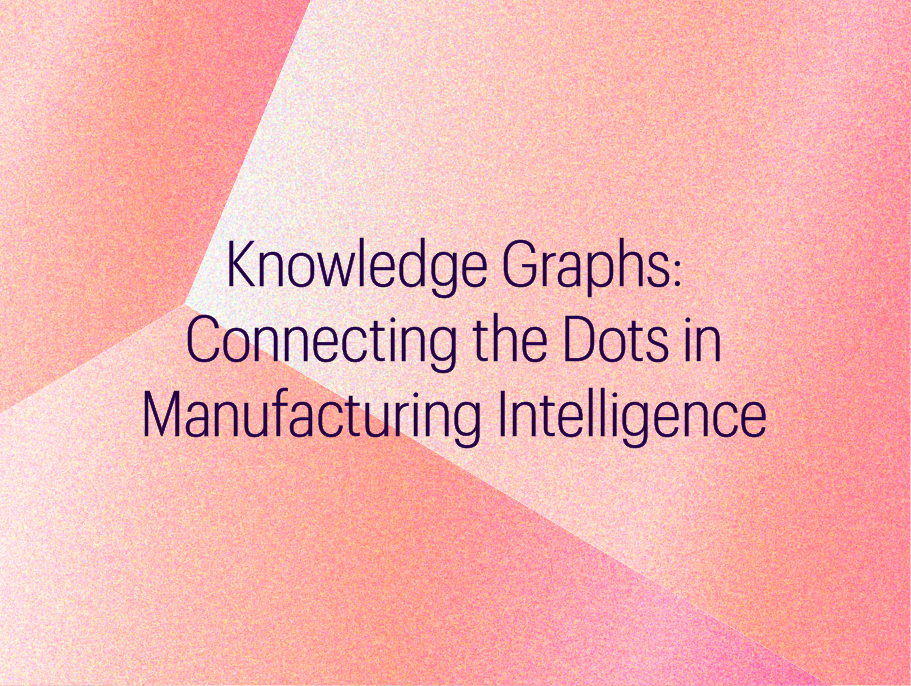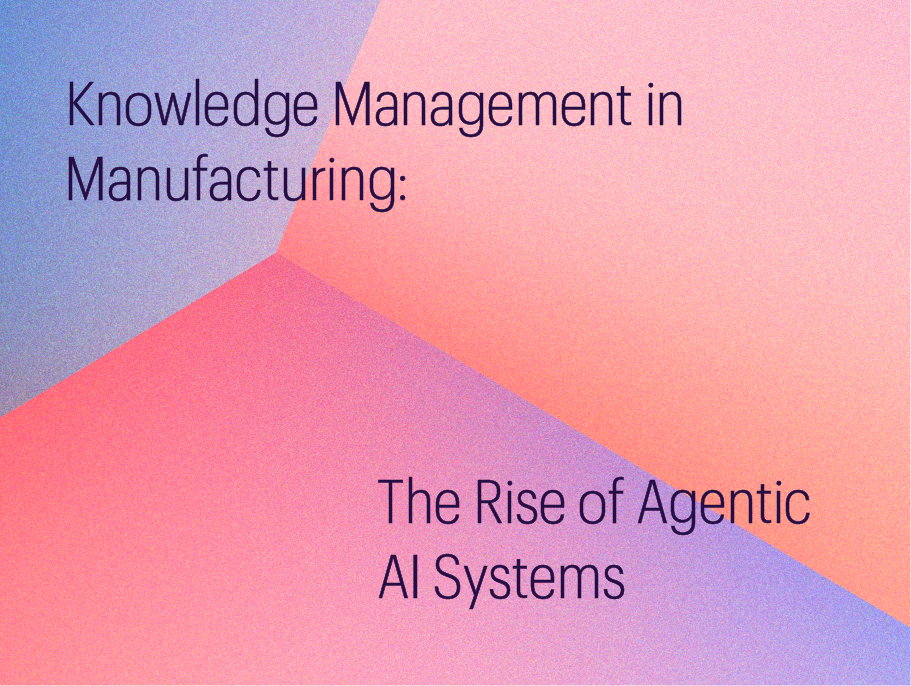In the pharma industry, where product discovery to development spans a decade and global R&D investments surpass $200 billion annually, Knowledge Management (KM) is the key to unlocking practical insights from huge data volumes. Pharma companies generate terabytes of data across the discovery, research & development, regulatory submissions, manufacturing, and market access, yet outdated and siloed KM systems hamper progress and escalate costs.
Approximately 79% of leaders see KM as vital for success, while fewer than one-third find their search tools effective. These isolated silos raise audit risks from poor data tracking and even increase the costs through repeated work. However, as the world advances toward precision medicines and resilient supply networks, integrating GenAI and Agentic AI in KM can offer $4-7 billion in annual operational gains by easing capture, boosting retrieval, and supporting sharing across the value chain.
The Imperative: Why Ineffective KM Undermines Pharma’s Core
Across the current pharma landscape, from the initial phase of discovery to post-market surveillance, fragmented KM initiates a cascade of disruptions at every step of the cycle.
- Researchers struggle with disorganized datasets, leading to overlooked hypothesis and prolonged hit identification.
- Clinical teams often face trial delays due to operational backlogs, fragmented data systems, and limited collaboration. Inefficient knowledge sharing leads to challenges in patient recruitment, protocol deviations, and misaligned trial endpoints.
- Regulatory professionals handle long submissions due to scattered compliance files, thus risking penalties under evolving mandates like GDPR.
- Manufacturing operators battle communication breakdowns in quality protocols, resulting in production shortfalls and batch recalls.
- Supply chain analysts navigate volatile forecasts from shaky market forecasts, worsening the shortages and inflating logistics expenses.
These bottlenecks not only duplicate efforts, wasting up to 30% of R&D time on information foraging, but also compromise patient safety. The adoption of GenAI across the pharma chain shows a potential of $60–110 billion in yearly value creation through automation, insight generation, and efficiency in the value chain. Building on this potential, Agentic AI and Systemic AI can drive the next leap—by enabling autonomous decision-making, seamless data flow, and intelligent orchestration across the clinical value chain.
The AI Shift: How GenAI and Agentic AI Redefine Knowledge Management
The introduction of GenAI and Agentic AI signals a strategic transformation in the capture of enterprise knowledge, its contextualization, and application. These machine learning systems can generate content, reason contextually, and engage dynamically with data and users, thus establishing the foundation for autonomous knowledge infrastructures.
GenAI leverages Large Language Models (LLMs), with extensive parameters to synthesize new outputs, summarize information, and derive insights from unstructured data. These models can process scientific texts, images, specialized formats like molecular structures, and documents to extract meaning and produce structured information. Upon integration with the Retrieval-Augmented Generation (RAG), these models connect directly to the data repositories, yielding responses anchored in authenticated data, verified with institutional knowledge, thereby improving accuracy and traceability.
Agentic AI builds upon this framework by pursuing objectives autonomously. From breaking down complex tasks to sequencing actions, interfacing with APIs or databases, performing validation, and providing continuous feedback loops, Agentic AI plans, executes, and iteratively refine tasks to achieve defined objectives.
Across sectors, GenAI revolutionizes content synthesis in media and design, while Agentic AI streamlines decision chains in finance and logistics, from risk modeling to supply rerouting. In KM, they transform static archives into adaptive, self-sustaining networks. For pharma, it resolves entrenched silos in data flows. GenAI enables automatic extraction and contextualization of data from clinical trials, regulatory submissions, and manufacturing logs, while Agentic AI systems coordinate validation, documentation, and quality assurance processes, thus evolving institutional data into an active, perpetually refined asset.
AI-Enabled KM Across the Pharma Value Chain: Targeted Use Cases
GenAI and Agentic AI, when incorporated across the entire pharma chain, don’t just augment KM; they orchestrate it. They alleviate the stakeholder’s issues by forming a systemic framework enriched with hidden insights, data, and various stakeholders.
Drug Discovery:
- Problem: Scientists face siloed, unstructured data across various tests and files.
- New Approach:
-
-
- GenAI uses RAG to scan knowledge bases. It mixes past tests into LLM prompts for clear summaries, thus boosting the hit rates.
- Agentic tools profile skills from lab notes and team apps. They link chemists to experts for instant talks, saving institutional know-how without extra writing.
-
Clinical Development:
- Problem: Teams suffer protocol lags and informational gaps in trial setup.
- New Approach:
-
-
- AI can aggregate prior protocol designs, historical deviations, and patient feedback to generate draft protocols or amendments.
- Agents can monitor and correlate safety databases, EMR/RWE sources, and external publications to detect signals proactively.
- Cross-study similarities, endpoints, and inclusion criteria can be mapped, enabling the reuse of learnings.
-
Regulatory & Compliance:
- Problem: Experts tackle drawn-out filings and split files. Untracked shifts draw reviews, and supply speed hurts fuzzy quality pasts.
- New Approach:
-
-
- AI can continuously scan global regulatory databases, flag changes, and map impacts to affected programs.
- KM systems must enforce provenance, versioning, and lineage to satisfy audit, traceability, and compliance needs.
- With structured knowledge assets, generative agents can assist in preliminary draft modules, cross-references, and consistency checks.
-
Manufacturing:
- Problem: Manual handling often leads to omissions. Isolated SOPs spark quota misses, pulls, and green lapses in scaling.
- New Approach:
-
-
- Autonomous agents can monitor equipment data, predict failures, and trigger preventive work orders.
- AI can map historical transfer records, pilot data, and scale-up signals to recommend parameter settings and minimize risk.
-
Supply Chain and Market Analysis:
- Problem: Analysts struggle with poor insights and forecasts.
- New Approach:
-
-
- GenAI can produce draft expert communications, slide decks, and scientific narratives based on the latest data.
- Agentic AI can integrate market data, competitor moves, epidemiology, and payer dynamics to simulate what-if scenarios.
-
These possibilities are no longer theoretical—MathCo has begun realizing them at scale with its NucliOS.
Enterprise Success Factors: Building Resilience for KM Transformation
For AI-driven KM to succeed, pharma leaders must operationalize five transformation pillars, namely, robust data pipelines, AI governance frameworks and strong leader sponsorship, cross-functional collaboration, and continuous talent development.
- Streamlined Data Infrastructure: High-quality, structured data are vital for introducing AI in various phases of product lifecycle like drug discovery and real-time analytics. It not only helps in compliance with regulations but also supports the development of personalized medicines.
- Actionable AI Governance: The need for an AI governance framework will not only allow actions taken by Agentic AI to be auditable but also align with the organization’s goals, thus building trust for applications like clinical trial designs.
- Strong Leadership Alignment: Leaders can foster AI adoption by aligning initiatives with the business goals, securing talents, setting measurable KPIs, and allocating resources for pilot projects, which can start bringing smaller wins, to negotiate with bigger later. The roadblocks addressal, progress assessment and scaling successful use cases can help in supporting the scaling of AI effectively.
- Cross-Functional Collaboration: Leaders should facilitate smooth syncing between teams such as IT, R&D, operations, and business units as collaboration across departments along with adoption of the tools helps in the successful integration of AI.
- Continuous Talent Development: Adoption of AI in any organization requires a workforce skilled in data science, AI ethics, prompt engineering, and domain-specific applications. Investing in upskilling programs or implementing mentorship programs for the executives by the leaders can help drive the smooth transition towards AI.
Together, working on these factors can make sure that the AI-driven KM is successful, prompting the industry to adapt quickly to changing markets based on data analysis.
MathCo’s Vision & Differentiation: Forging Unified Ecosystems with NucliOS and Systemic AI
MathCo reimagines KM as a Systemic AI framework, where GenAI and Agentic AI collate pharma’s disjointed streams into cohesive intelligence. Our platform, NucliOS, enables prebuilt, use-case-specific modules to integrate directly into existing pharma workflows, empowering leaders to harmonize and leverage their entire intelligence ecosystem for measurable business impact.
With solutions for HCP 360, Patient 360, and brand performance, MathCo’s Systemic AI connects siloed data, ensures high-quality flows, and guides organizations toward ownership of their analytics. Our data quality management framework strengthens compliance and removes barriers to true insight.
A Strategic Mandate: Elevate KM for Pharma’s Enduring Edge
In the upcoming transformation in pharma industry, KM will act like the strategic AI backbone for the organization enabling agility, regulatory resilience, and competitive differentiation. GenAI and Agentic AI hold transformative potential, but only when built upon a foundation of governed, high-quality, integrated data.
With the right architecture, governance, and change in leadership, KM powered by GenAI and Agentic AI can propel the organization from data chaos to strategic intelligence. Interested in learning how MathCo can help you with this transformation? You can learn more about our offerings for the Pharma industry here or contact us at [email protected]!

From Data to Discovery: Harnessing the Power of Knowledge Graphs in Drug Development

